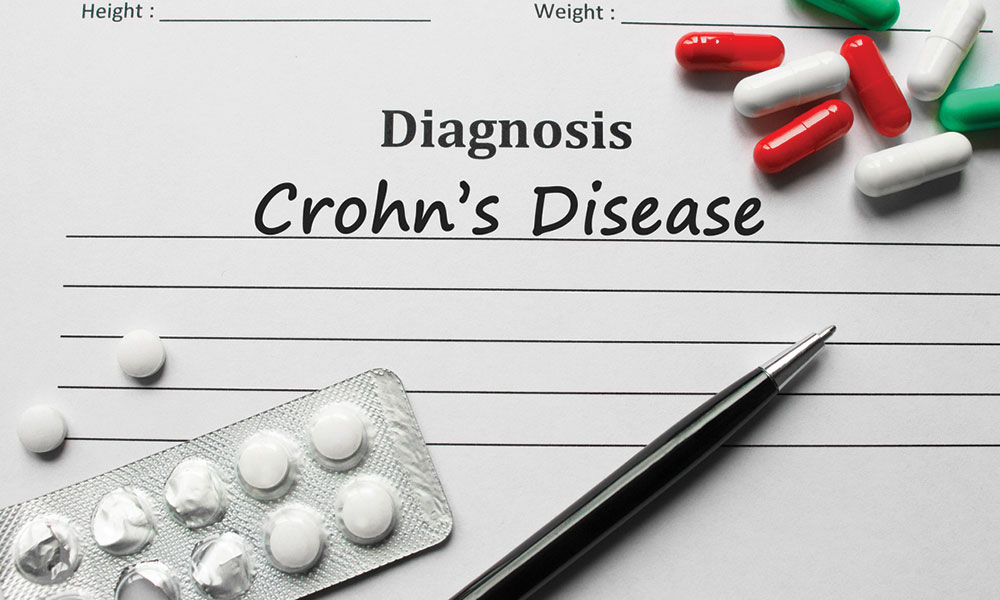Crohn’s disease is a chronic inflammatory condition that affects the digestive system, specifically the small intestine and colon. It is a type of inflammatory bowel disease (IBD) and can cause a variety of symptoms that can range from mild to severe.
Symptoms of Crohn’s disease can include:
Abdominal pain and cramping
Diarrhea
Rectal bleeding
Fatigue
Weight loss
Anemia
Nausea and vomiting
Loss of appetite
Fever
Mouth sores
Skin rashes or bumps
Inflammation in other parts of the body, such as the joints or eyes
Treatment for Crohn’s Disease
Crohn’s disease is a chronic condition, which means that it can last for a long time and may require ongoing treatment. The goal of treatment for Crohn’s disease is to reduce inflammation, alleviate symptoms, and improve quality of life. Treatment options for Crohn’s disease include:
Medications:
Anti-inflammatory drugs: These medications, such as corticosteroids and aminosalicylates, can help to reduce inflammation in the gut.
Immunomodulators: These drugs, such as azathioprine and 6-mercaptopurine, can help to suppress the immune system, which can reduce inflammation.
Biologic drugs: These medications, such as infliximab and adalimumab, can target specific molecules in the immune system to reduce inflammation.
Antibiotics: These medications, such as metronidazole, may be used to treat or prevent infections that can occur as a result of Crohn’s disease.
Surgery: In some cases, surgery may be necessary to remove the damaged portion of the intestine or to repair fistulas (abnormal connections between different parts of the gut). Surgery can provide long-term relief from symptoms, but it is not a cure for Crohn’s disease, and some patients may experience a relapse of symptoms after surgery.
Diet and Lifestyle Changes:
A low residue diet can help to reduce symptoms of diarrhea and abdominal pain.
Smoking can worsen symptoms of Crohn’s disease, so quitting smoking can help to reduce inflammation and improve overall health.
Regular exercise can help to reduce stress and improve overall health.
Nutritional Supplements:
Nutritional supplements such as iron, calcium, and vitamin D may be needed to correct deficiencies caused by the disease or due to malabsorption.
It’s important to note that everyone’s experience with Crohn’s disease is different, and treatment plans will vary depending on the individual and the severity of their symptoms. Individuals with Crohn’s disease should work closely with their healthcare provider to develop a treatment plan that is right for them. With the right treatment, many people with Crohn’s disease are able to manage their symptoms and lead full, active lives.
In conclusion, Crohn’s disease is a chronic inflammatory condition that affects the digestive system, causing a variety of symptoms. While there is no cure for Crohn’s disease, treatment options, such as medications, surgery, diet and lifestyle changes and nutritional supplements can help to reduce inflammation, alleviate symptoms, and improve quality of life. It’s important for individuals with Crohn’s disease to work closely with their healthcare provider to develop a treatment plan that is right for them.

 Home
Home Health
Health Diet & Nutrition
Diet & Nutrition Living Well
Living Well More
More












